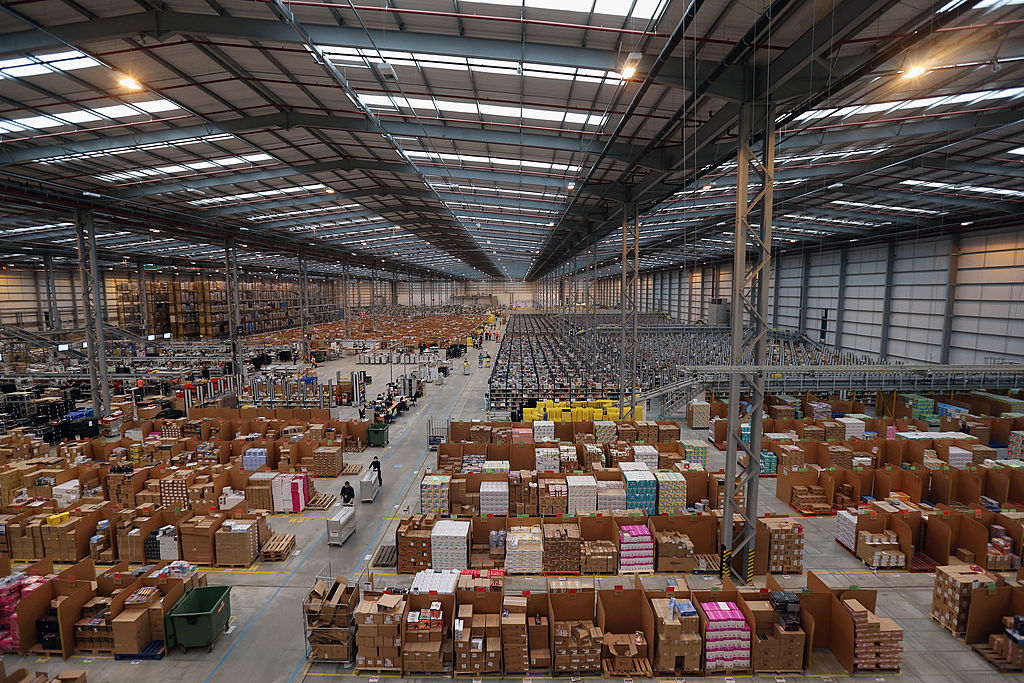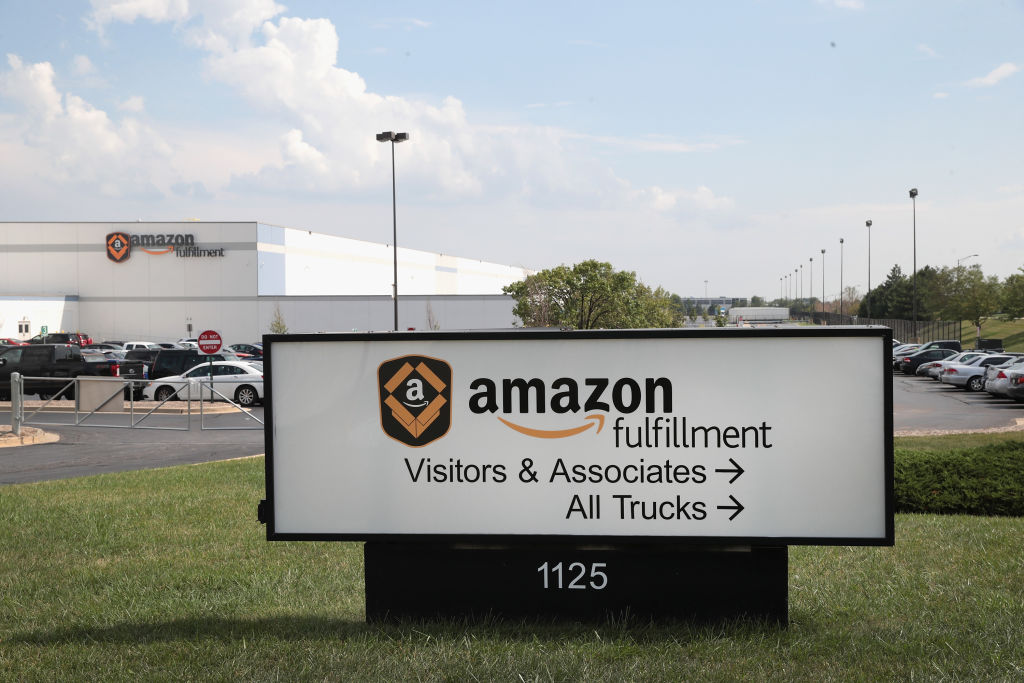
The growing number of Amazon centers where employees have tested positive has sparked concern from warehouse workers, as well as from Amazon's technology workers.
The retail giant, which employs some 800,000 workers globally, has not confirmed a total number of its warehouse or delivery staff who have tested positive with COVID-19. Workers and local news reports have flagged positive cases in two facilities in New York as well as in California, Connecticut, Florida, Illinois, Kentucky, Michigan, New Jersey, Oklahoma and Texas.
The first case of COVID-19 that Amazon has confirmed in one of its 14 fulfillment centers in the Inland Empire region of California (just east of Los Angeles) was earlier this week. The cluster is Amazon's largest concentration of warehouses and fulfillment centers in the world, employing about 18,000 people, according to a study by the Economic Roundtable, a Los Angeles-based nonprofit organization.
The Moreno Valley center is the latest warehouse where Amazon workers have tested positive. Amazon has had positive cases of COVID-19 in 10 of its fulfillment centers in various parts of the U.S., CNBC reported Thursday. It temporarily closed a warehouse in the New York City borough of Queens last week after a worker tested positive. Amazon has also closed a facility in Shepherdsville, Kentucky.
Amazon hasn't closed the Moreno Valley center, according to two employees who work there and asked to remain anonymous because they were not authorized to speak to the media.
But one of the sites Amazon has closed is a warehouse in Shepherdsville, Ky., until April 1st. This is after several workers there tested positive for the coronavirus — the first prolonged closure of a facility confirmed by the company.

"At the order of the Governor the [Kentucky] site is closed until April 1st," an Amazon spokeswoman told NPR in an email Thursday. "We will continue to work closely with health department and the Governor to reopen the site."
Amazon has promised two weeks of paid leave for workers who test positive for COVID-19 or who are asked by health or corporate officials to quarantine at home. However, Amazon's employees — speaking on social media and in press conferences organized by worker groups — say they feel exposed every time they go to work. And they say they can't afford to take unpaid leave but also struggle to receive pay without official testing results, which are hard to access across the country.
The virus can last on cardboard for up to 24 hours. That's noteworthy because many customers are using other online delivery services like Amazon during the coronavirus outbreak instead of going to stores in person. Food products packaged in cardboard could also be a risk.
Amazon CEO Jeff Bezos wrote last week that the company has...
... ordered "millions of face masks" for employees and contractors, but "very few of those orders have been filled."
"This isn't business as usual, and it's a time of great stress and uncertainty," wrote Bezos, who's the world's richest person. "It's also a moment in time when the work we're doing is its most critical."
In addition to announcing that it will be hiring an additional 100,000 workers, the company has also said it would temporarily raise its pay through April, by $2 per hour in the U.S. and similar amounts in the United Kingdom and Europe.
Amazon's Purchase Could Affect Your Prescriptions
 Amazon’s recent acquiring of online pharmacy PillPack, has been widely seen as a move that will disrupt the pharmacy business and could have a positive impact on patient engagement access to affordable prescriptions.
Amazon’s recent acquiring of online pharmacy PillPack, has been widely seen as a move that will disrupt the pharmacy business and could have a positive impact on patient engagement access to affordable prescriptions.
PillPack targets a specific sector of patients who have to take several different medications at any time. It packages pills in individual packets that help people remember when to take their drugs every day, an issue faced by many people taking, for example, drugs for diabetes, high cholesterol, blood pressures and cancer.
Buying PillPack is not Amazon’s first move into healthcare. It already sells over-the-counter medicines such as aspirin and antihistamines here in America, in addition to vitamins, supplements, and other health-related products. It even launched its own line of off-brand medicines called Basic Care in mid-2017 which sells medical supplies such as face masks and swabs and plans to expand into supplying hospitals and clinics with them as well.
Those who are watching the move closely anticipate that Amazon will eventually drive drug prices down due to its almost monopoly-like control over the delivered goods industry.
According to results from the 2018 Walker Sands Future of Retail report, 29% of consumers say they’re excited about the convenient experience Amazon provides, and that they’re already used to using it to make purchases.
Some 61% of respondents say they want to order prescriptions from Amazon because of its ability to ship quickly, and 54% said they would do so because of their existing trust in it and ensuring that their medicine was safe, accurate, cost-effective and easy to ingest.
They’d also want to know that their questions about the medicine were easily answered as they would be if they picked them up in person from a pharmacy technician at a drugstore for instance.
For patients with chronic conditions, as many as 50% don’t take their prescribed medications because of high costs, she says, and as many as 20% to 30% of prescriptions are never filled. With Amazon and PillPack, the pesky action traveling to and waiting in line at the pharmacy will be eliminated and hopefully help individuals get the medicine they desperately need and overcome past barriers.
There’s also the prospect of threading through Amazon’s same-day distribution into pharmaceutical deliveries. There could also be the utilization of telemedicine.
However, much of this speculation about the future will take quite some time to implement, we’re sure.
Amazon’s acquisition could have other long-term implications for traditional care providers, byadding another factor that can provide care management capabilities—offering a technological link that can ensure patients get the right treatment at the right time from the comfort of their own familiar environment i.e. their homes.
There’s also the prospect of threading through Amazon’s same-day distribution into pharmaceutical deliveries.
But, as exciting as these possibilities may sound, Amazon is in the early of the deal and will be figuring out logistics as the time passes. We’ll keep an eye on this exciting venture.








